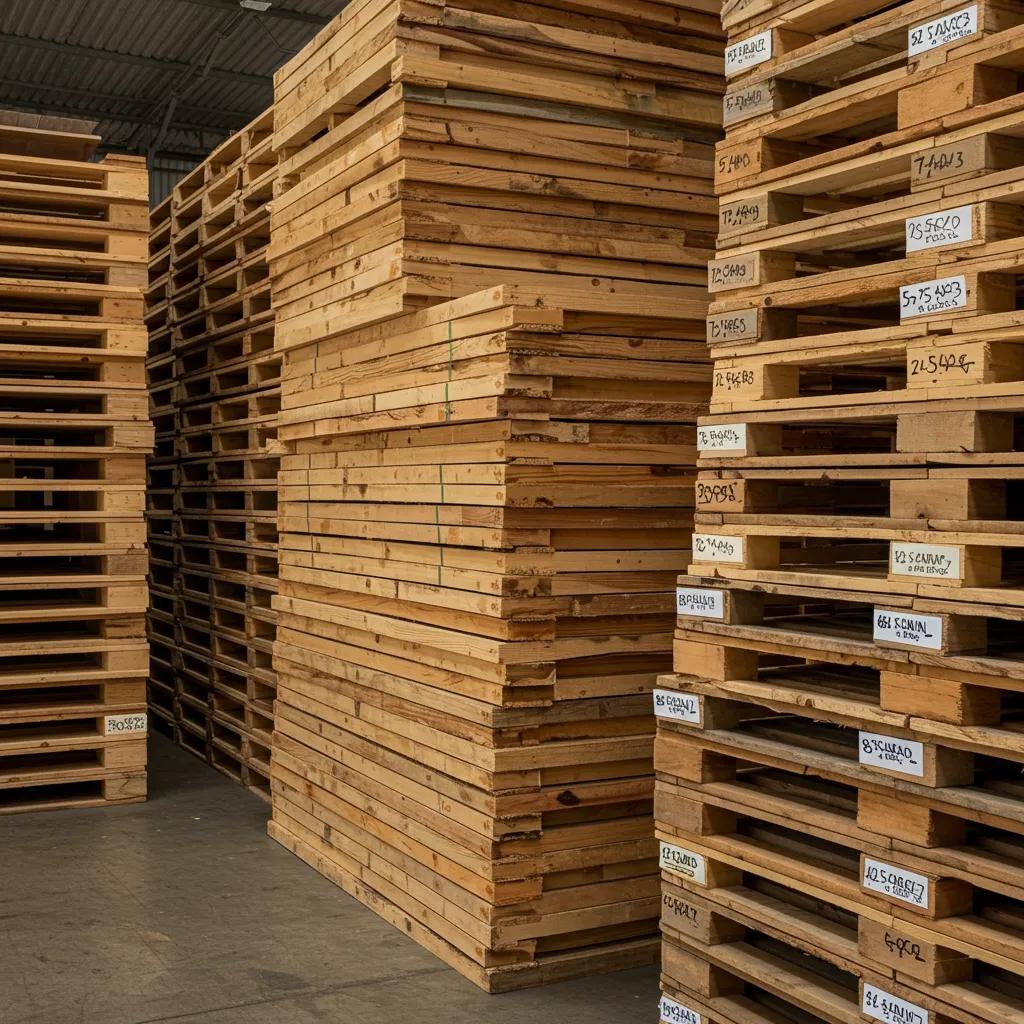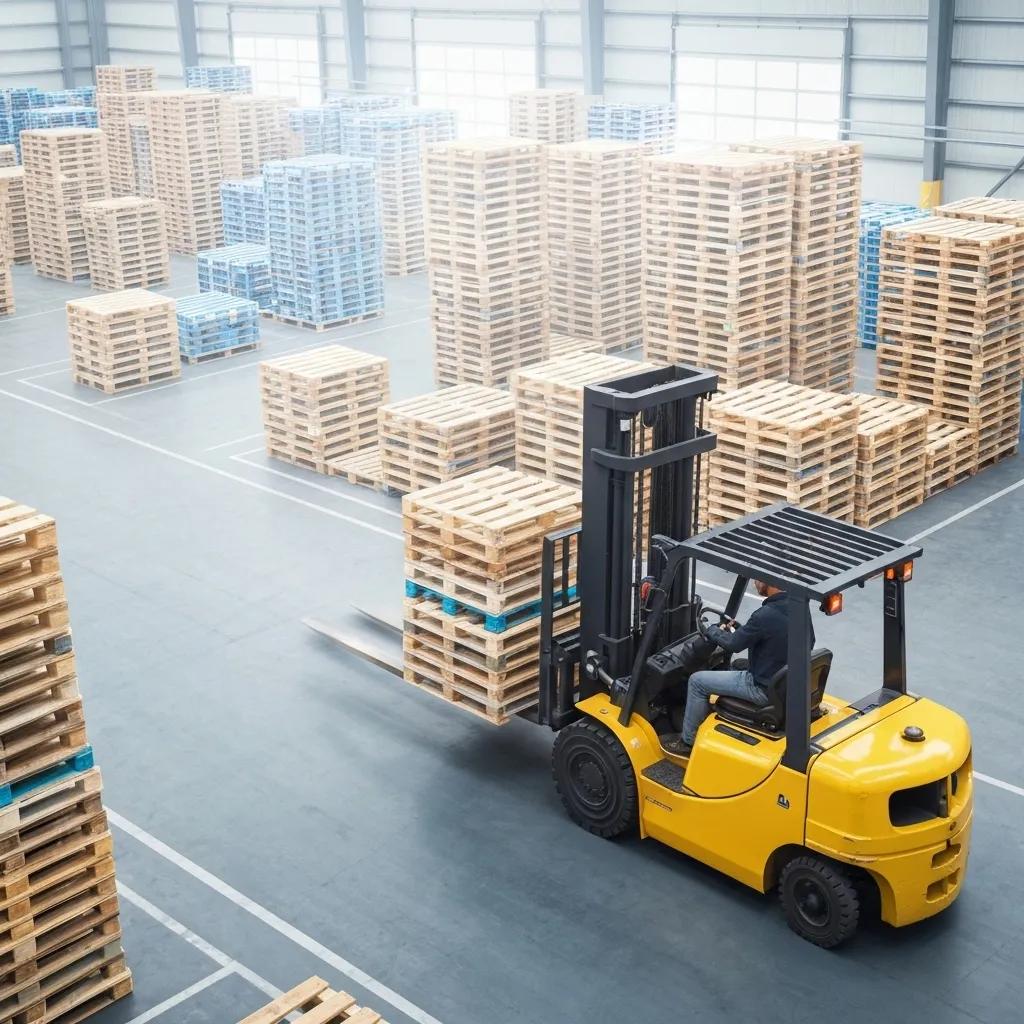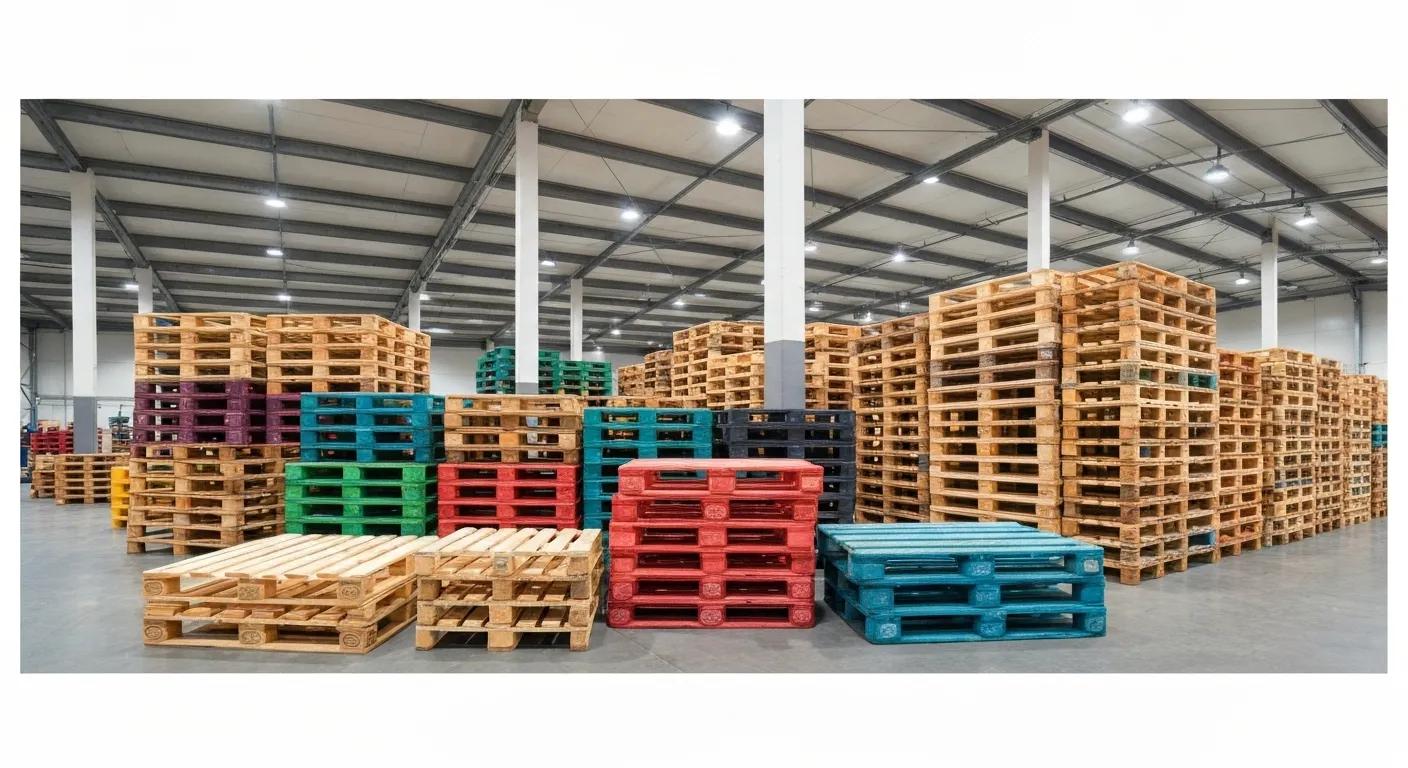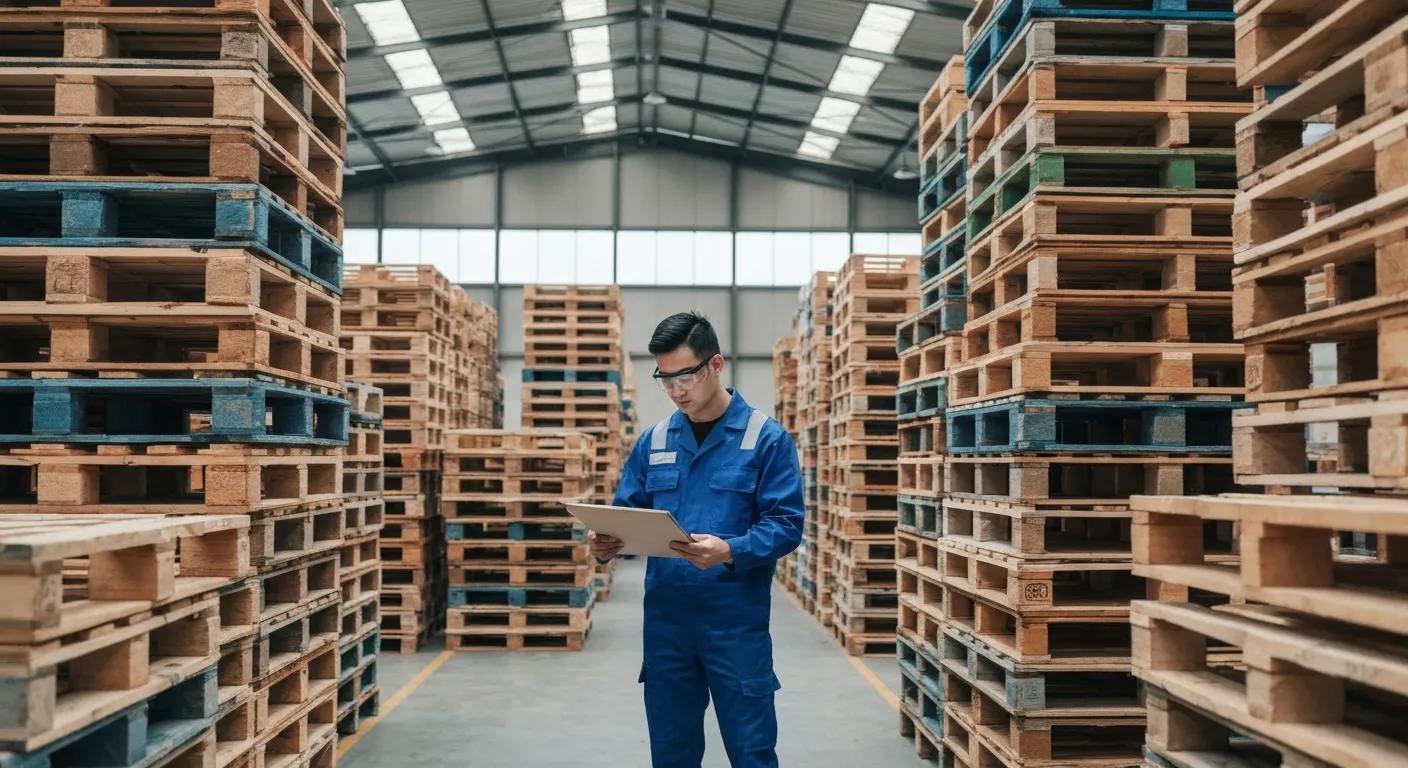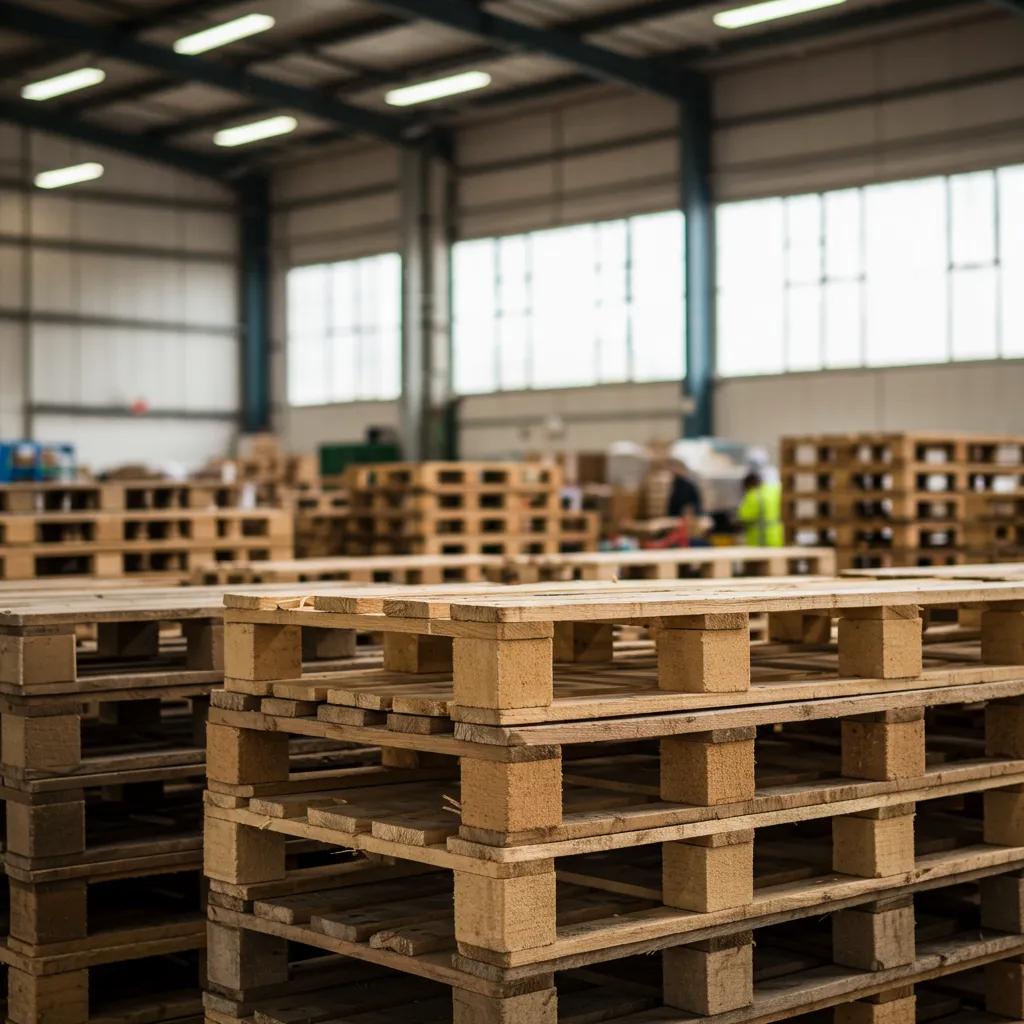
Why Lakeland Businesses Are Turning to Recycled Pallets for Smarter Shipping Solutions
Companies in Lakeland, FL are slashing shipping budgets by up to 50% and cutting carbon footprints as they adopt recycled pallets—durable, inspected platforms that lower procurement costs and streamline logistics. This article reveals how recycled pallets deliver measurable savings, support Lakeland’s environmental goals, boost supply chain reliability, ensure global export compliance, showcase WW Pallets’ local expertise, compare wood versus plastic options, and improve pallet inventory management. For businesses located near the airport industrial development land, including those in the B-P future land use area on the southeast side of the Lakeland Linder Airport, and along Drane Field Road, Air Park Drive, and Airport Commerce Drive, WW Pallets offers unparalleled proximity and service for these smart shipping solutions.
What Are the Key Cost Savings of Using Recycled Pallets in Lakeland?
Recycled pallets deliver immediate economic value by replacing new-wood procurement with refurbished platforms that cost significantly less while meeting industry standards. For example, a distribution center in Lakeland reduced its annual pallet spend by 40% within the first quarter of switching to recycled pallets.
Below are the primary ways recycled pallets trim expenses across operations:
- Lower upfront purchase price through reclaimed wood sourcing and refurbishment.
- Reduced damage-related costs thanks to quality inspection and repair.
- Predictable pricing that avoids new-lumber market fluctuations.
- Minimized disposal fees by extending pallet service life with reconditioning.
These savings illustrate how recycled pallets translate into immediate and predictable reductions in shipping budgets.
Cost Savings of Recycled Pallets
Recycled pallets offer significant cost savings compared to new pallets, with potential reductions of 30–50% in acquisition costs. These savings are realized through lower purchase prices and reduced damage-related expenses, contributing to immediate and predictable reductions in shipping budgets.
[No Author Listed], [Pallet Enterprise] (2023)
This research supports the article’s claims about the financial benefits of using recycled pallets.
How Do Recycled Pallets Reduce Shipping and Supply Chain Costs?
Recycled pallets reduce shipping costs by lowering acquisition expenses, lightening loads, and minimizing damage-related charges.
- Lower acquisition costs: Refurbished pallets often cost 30–50% less than new ones.
- Reduced freight charges: Lightly repaired pallets can weigh up to 10–15% less.
- Decreased handling damage: Inspected pallets lessen product breakage during transit.
Together, these factors create a leaner supply chain with more predictable costs.
What Are the Typical Price Differences Between Recycled and New Pallets?
Comparing average costs highlights the financial edge of recycled pallets:
| Pallet Type | Price Range (USD) | Typical Savings |
|---|---|---|
| Recycled Standard Wood | $8 – $12 | 30–50% vs. new |
| New GMA Wood | $15 – $25 | Baseline new cost |
| Recycled Heat-Treated | $12 – $16 | 20–40% vs. new |
Recycled pallets consistently undercut new pallet prices by significant margins.
How Do Recycled Pallets Lower Disposal and Freight Expenses?
By extending pallet lifespan and optimizing load capacity, recycled pallets reduce disposal and freight charges.
- Avoid tipping fees with refurbished units instead of landfill disposal.
- Extend service life through quality repair, delaying replacement costs.
- Maximize trailer cubic capacity by removing broken deck boards.
These measures combine to deliver lower total logistics expenses.
How Do Recycled Pallets Support Sustainability and Environmental Goals in Lakeland?
Recycled pallets play a vital role in Lakeland’s sustainability strategy by reducing resource consumption and diverting waste from landfills. For instance, a local cold-storage operation cut its annual wood waste by 85% after partnering with a pallet recycler. Businesses operating near the airport industrial development land and the B-P future land use area, as well as those situated along Drane Field Road, Air Park Drive, and Airport Commerce Drive, can significantly contribute to these environmental goals by utilizing recycled pallets.
Key environmental benefits include:
- Forest conservation through decreased demand for new lumber.
- Reduced greenhouse gas emissions by avoiding fresh timber harvesting.
- Minimized landfill burden as more than 95% of recycled pallets are reused.
What Is the Environmental Impact of Using Recycled Pallets?
Recycled pallets shrink carbon footprints by reusing existing materials instead of processing fresh wood. Every refurbished pallet can prevent roughly 20–30 lbs of CO₂ emissions compared to manufacturing a new one. This reduction aligns with corporate sustainability targets and community environmental standards.
How Do Recycled Pallets Contribute to the Circular Economy?
Recycled pallets exemplify circular-economy principles by keeping materials in continuous use. Through repair and refurbishment cycles, pallets remain productive assets until the end of multiple service lives, maximizing resource efficiency and reducing waste generation.
How Many Trees and Landfill Waste Are Saved by Pallet Recycling?
This table shows the annual environmental savings from pallet recycling:
| Volume of Pallets Recycled | Trees Conserved | Landfill Diversion Rate |
|---|---|---|
| 350 million annually | 30-35 million trees | Over 95 percent |
Environmental Benefits of Pallet Recycling
Pallet recycling significantly reduces environmental impact by conserving forests and minimizing landfill waste. Recycling 350 million pallets annually conserves approximately 30-35 million trees and diverts over 95% of waste from landfills, highlighting the pivotal role of recycled pallets in sustainability efforts.
[No Author Listed], [National Wooden Pallet & Container Association] (2023)
This source provides data that supports the article’s claims about the environmental advantages of pallet recycling.
What Operational Benefits Do Recycled Pallets Offer for Lakeland’s Logistics and Supply Chain?
Recycled pallets strengthen supply chain reliability by providing a consistent inventory of inspected, ready-to-use platforms. A Lakeland beverage distributor reported 20% fewer shipment delays after standardizing on quality-checked recycled pallets. For businesses in the vicinity of the airport industrial development land and the B-P future land use area, including those on Drane Field Road, Air Park Drive, and Airport Commerce Drive, this reliability is crucial for maintaining efficient operations.
Recycled pallets deliver operational advantages such as:
- Consistent availability through local recycling and refurbishment networks.
- Custom sizing and configuration options to match specific load requirements.
- Enhanced workplace safety with repaired pallets meeting industry inspection standards.
Maintaining reliable pallet assets promotes smoother workflows and fewer unexpected disruptions.
How Do Recycled Pallets Improve Supply Chain Reliability and Control?
Recycled pallets bolster supply chain control by ensuring a steady, predictable pool of assets. Inspected and repaired pallets reduce the risk of missing or damaged units, keeping production lines and loading docks on schedule.
What Types of Recycled Pallets Are Available for Different Shipping Needs?
Lakeland businesses can choose from multiple recycled pallet varieties:
- Wood stringer pallets for general-purpose loads.
- Block pallets refurbished with high-grade hardwood deck boards.
- Heat-treated pallets certified to ISPM 15 standards for export compliance.
These options cover domestic, export, heavy-duty, and specialized shipping requirements.
Why Is Quality Inspection Important for Recycled Pallets?
Rigorous inspection and grading ensure recycled pallets meet load-bearing and safety criteria. Identifying and repairing weak boards, nails, and structural flaws prevents in-transit failures and maintains OSHA-compliant workplace conditions.
What Is ISPM 15 Certification and Why Is It Important for Lakeland Businesses?
ISPM 15 is an international phytosanitary standard that requires wood pallets to undergo approved heat treatment or fumigation before export. Compliance protects against invasive pests and meets the U.S. Department of Agriculture’s export regulations.
How Does Heat Treatment Ensure ISPM 15 Compliance for Pallets?
Heat treatment raises pallet core temperature to 56 °C for at least 30 minutes, eliminating wood-boring insects. This process is monitored, stamped, and documented to satisfy international customs inspections.
ISPM 15 Compliance and Heat Treatment
ISPM 15 is an international standard requiring heat treatment or fumigation of wood pallets for export to prevent the spread of pests. Heat treatment involves raising the pallet core temperature to 56 °C for at least 30 minutes, ensuring compliance with international customs inspections and opening global markets.
[No Author Listed], [USDA APHIS] (2022)
This citation clarifies the importance of ISPM 15 certification for businesses involved in international trade, as discussed in the article.
Where Can Lakeland Businesses Get ISPM 15 Certified Recycled Pallets?
WW Pallets operates a certified heat-treatment facility serving Lakeland and Central Florida. Businesses can order ISPM 15 pallets directly or arrange on-site treatment services to convert existing stock into export-ready platforms. Our proximity to the airport industrial development land and the B-P future land use area, as well as our location near Drane Field Road, Air Park Drive, and Airport Commerce Drive, makes us the ideal partner for your export needs.
Why Should Lakeland Businesses Choose WW Pallets for Recycled Pallet Solutions?
WW Pallets combines deep local expertise with comprehensive services—pallet supply, recycling, custom configurations, and certified treatments—tailored to Lakeland’s key industries, from agriculture to distribution centers. Our strategic location near the airport industrial development land and the B-P future land use area, along with our accessibility from Drane Field Road, Air Park Drive, and Airport Commerce Drive, ensures we are well-positioned to serve businesses throughout the region.
Leveraging WW Pallets’ capabilities translates into reliable service, competitive pricing, and sustainability leadership for regional businesses.
What Local Services Does WW Pallets Offer to Lakeland Businesses?
WW Pallets provides:
- Scheduled and on-demand pallet recycling pickups.
- Custom pallet design and repair services.
- In-house heat treatment for ISPM 15 compliance.
These local offerings ensure fast response times and minimized downtime.
How Does WW Pallets Ensure Fast Delivery and Competitive Pricing?
A strategically located facility in Polk County and a large inventory of refurbished pallets allow WW Pallets to offer same-day or next-day delivery. Bulk buying power and efficient refurbishment processes keep customer pricing below market averages. Our proximity to key industrial areas ensures rapid delivery for businesses operating near the airport industrial development land and the B-P future land use area.
What Do Lakeland Customers Say About WW Pallets?
Lakeland manufacturers and wholesalers regularly praise WW Pallets for reliability, transparent pricing, and environmental stewardship—testament to the trust built through consistent service and measurable sustainability results. Businesses located near Drane Field Road, Air Park Drive, and Airport Commerce Drive have particularly benefited from our responsive service.
How Do Recycled Wood Pallets Compare to Plastic Pallets for Lakeland Shipping Needs?
Recycled wood and plastic pallets each offer unique strengths. Understanding their differences helps businesses choose the optimal solution for load type, frequency of use, and environmental priorities.
Below is a high-level comparison:
| Material | Advantage | Considerations |
|---|---|---|
| Recycled Wood Pallets | Lower upfront cost and easy repair | Susceptible to moisture and pests |
| Plastic Recycled | High durability and moisture resistance | Higher acquisition expense |
What Are the Advantages and Disadvantages of Recycled Wood Pallets?
Recycled wood pallets are affordable, easy to repair, and biodegradable. However, they require regular inspection for moisture damage and pest control to ensure longevity in humid environments.
When Are Plastic Recycled Pallets a Better Choice?
Plastic recycled pallets excel in wet or sanitary conditions—such as food processing—due to their resistance to moisture, chemicals, and bacteria. Their higher initial cost is offset by extended service life in demanding settings.
How Can Lakeland Businesses Manage Pallet Inventory and Recycling Efficiently?
Effective pallet management programs help Lakeland companies track assets, reduce losses, and optimize reuse cycles. Implementing systematic pickup and exchange services ensures pallets continually flow back for refurbishment. For businesses near the airport industrial development land and the B-P future land use area, efficient management is key to maintaining smooth operations.
What Are Pallet Pickup and Recycling Programs Available Locally?
WW Pallets offers flexible programs:
- Regular scheduled pickups based on usage volume.
- On-demand collection for sudden inventory surges.
- Pallet exchange programs that swap damaged units for ready-to-use pallets.
These services keep inventory levels balanced and eliminate disposal hassles.
How Do Pallet Management Programs Improve Logistics Efficiency?
Structured management programs provide real-time visibility into pallet counts, reduce emergency pallet purchases, and lower handling time, enabling tighter control over shipping schedules and overhead costs.
What Are Best Practices for Sustainable Pallet Use in Lakeland?
- Perform routine inspections to identify repair needs early.
- Segregate damaged pallets for immediate refurbishment.
- Partner with certified recyclers to ensure environmental compliance.
- Standardize pallet sizes to simplify logistics and stacking.
By integrating recycled pallets, Lakeland businesses achieve significant cost savings, operational resilience, environmental stewardship, and compliance with export regulations. Contact WW Pallets at https://wwpallets.net to transform your shipping solutions with sustainable, reliable recycled pallets today. Our convenient location near the airport industrial development land and the B-P future land use area, along with our accessibility from Drane Field Road, Air Park Drive, and Airport Commerce Drive, makes us the premier choice for your pallet needs.
For more information or to discuss your specific needs, feel free to reach out to Chris Steele or David Lacy at 813.707.8474.


